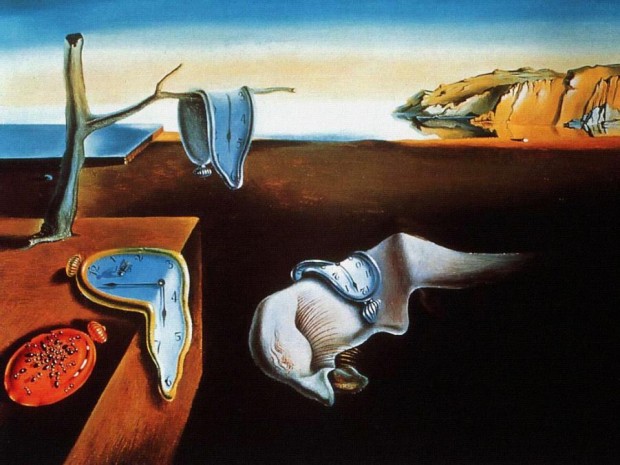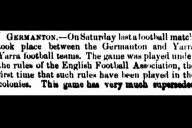Football has a time-wasting problem. I make this judgement on the basis that coaches, players and fans complain about both time-wasting and ineffective time-keeping in football (just Google “football time wasting”, and see how many articles you find, especially compared to, say, “basketball, AFL, gridiron time wasting).
But when the issue is brought up, such as in this article, you get a barrage of logical fallacies in response – for example:
“If the clock stopped automatically for each dead ball matches would go on forever, as players would try to get instructions from the bench for each throw or free kick.”
Sorry, but speeding up restarts is a separate issue from making sure the playing time in each game is the same. Keeping an accurate game clock simply removes one incentive to delay restarts. So, let’s not conflate issues, and instead solve them one at a time – starting with quantifying the problem.
As fivethirtyeight reported during the World Cup,
“Out-of-play time is five or 10 times as long as the time referees add back on… The second half of the U.S.-Portugal game included 22 minutes and 50 seconds in which the ball was out of play — yet no one was expecting the referee to add 23 minutes at the end.”
There is considerable variation in the time taken to return the ball to play, particularly at injury delays and from free kicks (around 90 seconds for a free kick close to goal), and variation in the number of free kicks in a game. Whilst some of this is subject to cultural indifference – the delays are simply part of the game – the game also has scarce remedy written into its laws.
Reflecting its past, where the referee was the only official (which we should note is also its present, at the park-football level), the referee is also the timekeeper, and is free to add (or not add) as much time as he sees fit at the end of each half. In theory, this opens the door for any game to be extended to accommodate wasted time, but in practice it merely results in the addition of between one and four minutes, correlated with the number of goals and substitutions which have occurred. Tacitly, it’s accepted that around 15 minutes will be lost each half by waiting for free kicks, or the ball out of play to be restarted. In reality, it turns out to be more, sometimes much more.
Again, fivethirtyeight from the World Cup,
“Notwithstanding the higher number of second-half subs, in this World Cup there hasn’t been a big difference between time the ball is out of play in the first half and in the second half: 19 minutes and 43 seconds in the first, 22 minutes and 27 seconds in the second. Citing similar statistics, football writer Gabriele Marcotti has argued that officials should stop the clock when the ball is out of play and make each half 30 minutes long.”
Where blatant time-wasting is occurring, by its rule-book football purports to use both penalising (yellow card) and disincentive (addition of time), but in reality it uses only penalising, and that sparingly.
Consider again the official’s dilemma: what is seen as more sensible – waving my hand and appearing assertive at a player who is delaying, or giving a yellow card and seeming over the top? Once one yellow card has been given, the referee is somewhat locked in to continuing every time a delay happens (awkward when the player has already been cautioned – sending someone off for a time-wasting second caution seems pedantic in the extreme).
Charting a “sensible” path between keeping the game going, the referee will probably opt for some hand-waving, maybe a caution if it gets really bad (but only in the last few minutes of the match – after several minutes have been wasted cumulatively – by which time who would know when the match should actually end but at least the ref won’t have a notebook full of cautions).
The consequence can be that the final stages of an otherwise entertaining game can be marred by delays, frustrated challenges leading to more delays – all of it very much un-football-like (although, as often as it happens, Stockholm Syndrome might make us think it’s the essence of the game).
So, in this thought experiment is: what would be better, what would suffer, and what would be the unintended consequences if football used the disincentive method, or supplemented the penalising method? The table below summarises the rationale, intended and unintended outcomes of stopping the clock when the ball is out of play and making each half 30 minutes long. I’m sure there are more.
| Rule Change | Intended Consequences | Unintended Consequences | Practicality |
|---|---|---|---|
| Game consists of 2 30-minute halves. Clock stops unless the ball is in play. | Disincentive to delay restarting the game. If a restart is delayed, no cause for frustration by opponents. Standardising the effective length of games. | Matches played in hot conditions would last longer as tiring players take more time to restart play. For broadcasters, uncertainty about when a game will finish. | At higher levels, at least one additional official is needed. At lower levels, accurate timing may be difficult for a lone official to manage. |
I should point out that the intention of accurate time-keeping isn’t to “change the game” as such. Here’s a list of things that I enjoy seeing in football, none of which would be removed from the game: a player scores a goal, an attempt at goal is saved, attempt at goal is missed, great pass sets up attacking play, great defence ends some attacking play, great individual skill to make the most of a difficult situation / control ball / keep ball in play / beat another player, great interchange of passing to set up an attack, great interchange of passing to keep possession, a team’s tactics broadly speaking work well to set up continuous attacks, a team defends their lead with desperate defence / a team chases an equalising goal with all-out attack, a team’s tactics broadly speaking work well to blunt opposition attacks.
Here’s a list of things which you might see less of: players standing still, player waits before delivering a throw-in, corner kick, free kick, goal kick, player takes a long time to get up after soft foul, ball boys / girls not returning the ball to visiting teams, players fighting for the ball in the goal net after a still-trailing team has scored.
The main difficulty I can see with these rules changes in football is that, culturally, time-wasting has been part of the game for a very long time; or that like faking injuries to draw cautions, moving the ball up at free kicks and other cheating-lite strategies: both sides do it, it evens out and is fair. (Of course, if you gave both goalkeepers a baseball bat and license to use it, that would also be fair, but not really in the spirit of the game.)
But, as of 1992 the back-pass ceased being seen as something not worth preserving. Maybe soon time-wasting can be too.
But then again, as The Guardian reported,
Stoke fans may have enjoyed beating Aston Villa 2-1 but they saw only 40 minutes and 50 seconds of actual football in what our reporter called “a dreadful game” that was “pockmarked by errors”.
Imagine spending 135 minutes watching 60 minutes of actual dreadful football.
















